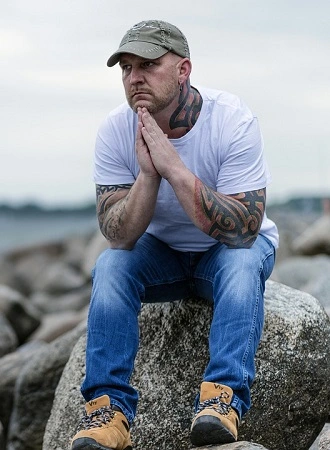
Suicide Prevention: Seek Ways to Combat Depression and Sadness
Suicide Prevention: Seek Ways to Combat Depression and Sadness
Guest Post by Melissa Howard, StopSuicide.info
The National Institute of Mental Health describes suicide as, “Death caused by self-directed behavior with intent to die…” And each year, more than 44,000 men and women in the United States die by their own hand, leaving behind friends and family who are often blind-sighted by the death.
There is no one specific reason people choose to end their own life. But there are things you can watch for that might be a silent signal that a friend or family member needs intervention.
Depression
Depression is a mental illness caused by several factors including genetics, personality, and biochemistry. While everyone can feel sad, not all sadness leads to depression but depression is an overwhelming cause of suicide. Signs of depression include an unavoidable sense of deep sorrow, loss of interest in friends, family, and activities, extreme fatigue and thoughts of/attempted suicide.
If you believe someone you love is depressed, talk to them. Ask them how they are feeling and encourage them to seek help. The American Psychiatric Association reports that up to 90 percent of people with depression respond to treatment, which may include a combination of medication, talk therapy and self-coping strategies.
Drug abuse
Drug abuse ranks as one of the top risk factors for suicide. A drug-addicted person may present with personality changes in the form of social withdrawal, secretiveness and altered behavior along with physical symptoms such as extreme weight loss and sunken eyes.
Substance abuse disorders are treatable but often spiral out of control before being realized. When a friend or family member is displaying risky behaviors due to drug use, he or she needs help. Don’t be afraid to confront their actions but do so with love and compassion. Remember, no one starts their addiction journey hoping to become dependent and your concern may lead them back down the path of sobriety and health.
Traumatic life event
The loss of a spouse, child, or sibling; rape, physical abuse, and sexual abuse; witnessing a murder or suicide; and divorce are all traumatic life events associated with an increase in suicidal thoughts. Likewise, PTSD associated with combat stress is also a factor in active and retired military personnel.
During times of difficulty, a network of support is a valuable asset against the negative side effects of trauma. Make a point to help your loved one reach out to sources that might help. This could be a social group, church, or school staff.
Stress
Stress comes from all around us. Work, school, home and social demands are among the factors that can leave a person drained and seeking respite. Stress is also a leading cause of suicide.
While you can’t stop your loved one from feeling some stress, there are things you can do ease the burdens of life at home. Start by helping them eliminate things that trigger stress. For many, clutter and piled up chores may be their breaking point. If you live with the stressed person, offer a helping hand by cleaning up. You can also work with them to create a “stress-free” zone within their home. This could be in the form of a meditation room that’s off-limits to children and pets — a room that fosters a sense of inner peace. HomeAdvisor notes this meditation room should be simple and personalized for the user.
Warning signs that indicate a possible approaching suicide attempt include:
- Social withdrawal
- Fascination with death
- Giving away personal belonging
- Acting more irritable than usual
- Acting suddenly happy after a period of depression
- Self-harming
Suicide is a preventable cause of death and one triggered by factors such as depression, drug abuse, and stress. If you fear that someone you love is considering taking their own life, don’t be quiet about it. Your friendship may save someone you love from making a permanent decision regarding a temporary problem.
Melissa Howard is Head of Prevention Outreach at her website StopSuicide.info in which she writes articles about handling suicidal thoughts and recovering from suicidal attempts. She can be reached at melissa@stopsuicide.info.
Photo: Pixabay

